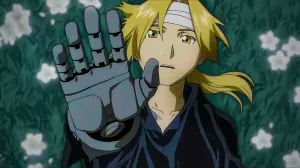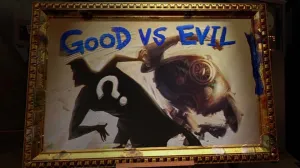
Thanos has never had a bigger spotlight than in the year 2018. At Marvel Comics, he is carrying his own series in which he has finally conquered all life in the story “Thanos Wins” and will be a key player in the upcoming summer event “Infinity Wars”. More notably to the non-comics reading public, he will finally take center stage in the Marvel Cinematic Universe. In the upcoming Avengers: Infinity War, Thanos will be the central villain, and one of the most significant point-of-view characters according to the director.
Videos by ComicBook.com
The Mad Titan might consider this recognition a long time coming, 45 years after his creation by Jim Starlin and Mike Friedrich in the pages of Iron Man #55. Thanos has been a core villain in Marvel Comics for many years, consistently returning to their space-bound epics after the events of The Infinity Gauntlet. However, other bad guys like Magneto and Doctor Doom have always garnered a larger fan following in the comics. That’s no longer true, and it’s not just due to his central role in the films. Thanos represents a lot of what makes both Marvel Comics and their villains great. Looking at how he has become the central player in the comics and movies alike, it’s possible to make the case that he is this shared universe’s ultimate villain.
That’s exactly what we plan to do.

A Petty and Vain Villain
Whenever an argument about Marvel and DC Comics arises, there’s a constant refrain about what sets Marvel apart: their characters are much more human. That’s not to say that DC Comics doesn’t have relatable heroes, but Marvel did establish itself at the start by introducing much more flawed protagonists. It’s a key part of the publisher’s DNA and extends to all of their characters, villains included.
There is plenty about Thanos that sets him apart. Even without the Infinity Gauntlet, he possesses incredible power and a past comparable to the pantheon of Greek gods. With the Gauntlet? He’s literally a — the — god. In spite of that overwhelming ability, he remains a deeply flawed character. There’s a lot to be said about Thanos’ terrible destiny and his capacity for evil, but his motives are not difficult to understand. They’re not even worthy of much more than disdain. Thanos is obsessed. He is egotistical and sheds his self-love only for an impossible desire for an unobtainable being: Death. Remove the abstract concept as lover and you’re left with a deeply disturbed individual who listens to way too much heavy metal. Just like all of Marvel’s great characters, Thanos is a very human one. His inner-self is every bit as ugly as his chin, deserving him far more worthy of pity than admiration.

No Hero Too Great or Too Small
The power differentials within Marvel Comics often make for odd pairings. Spider-Man has fought heralds of Galactus and The Punisher was recently promoted to the cosmic scale in Thanos. It’s important that the heroes and villains of these stories aren’t disconnected from one another. In the first thoroughly conceived shared superhero universe, the smallest actions of Ant-Man can impact the grandest adventure of the Fantastic Four.
Thanos is rivaled only by Doctor Doom in the variety of heroes he has fought. While both of these foes provide a level of power and ambition that might suggest they only enter the craziest of events, it’s worth noting they’ve both also been defeated by Squirrel Girl. That shouldn’t be treated as a joke though. There is merit in having a universal villain be confronted by Captain America as shown in the most iconic pages of The Infinity Gauntlet. Marvel Comics has always valued its underdogs, and crafted stories in which heroes are empowered by their values and dedication to a good cause. The entire story of Spider-Man is based around facing impossible odds. That Thanos can also be seen flying about in a helicopter and tussling with street-level heroes makes him a more versatile villain, and one that better embodies the core values of Marvel Comics.

The Embodiment of Death
The mark of a great villain is how well they reflect their hero. So the mark of a great villain for the Marvel universe should be how well they reflect all of its heroes. Considering the flawed nature of Thanos and his flexibility to tussle with any sort of superhero, it’s clear how he can connect with all of Marvel in comics or film. Yet what does he reflect about these heroes as a collective?
Marvel Comics presents a world in which its heroes don’t survive by always doing the right thing. There is no equivalent to Superman; the closest thing they have is Captain America, and even he makes plenty of mistakes by comparison. What sets these superheroes apart is a commitment to their ideals. That sometimes leads them into catastrophes like the Civil War, but it’s also what prevents them from giving up in the wake of losing an icon like Cap.
The reverse of this commitment to the fight, to the ideal, to life is surrender. And that’s where Thanos comes in. In all of his various incarnations, Thanos has sought absolute control. Whether it’s in the form of the Infinity Gauntlet or Cosmic Cube, Thanos wants to end or, at the very least, suppress life. In The Infinity Gauntlet he killed half of the universe and assumed absolute power over those who were left. That is anathema to the rebellious nature of Marvel’s heroes. A brief examination of their greatest moments makes it clear that this is the connecting thread. From the Fantastic Four’s birth in an unapproved rocket launch to Spider-Man’s triumphant moving of impossible obstacles to Captain America’s speech about planting yourself by the river of truth, Marvel Comics’ heroes simply don’t quit. That’s what reveals the true evil of Thanos’ ambition for absolute power and the deep wells of heroism in these very human characters. It’s why Thanos is the ultimate villain for the characters of Marvel in every form they take.








